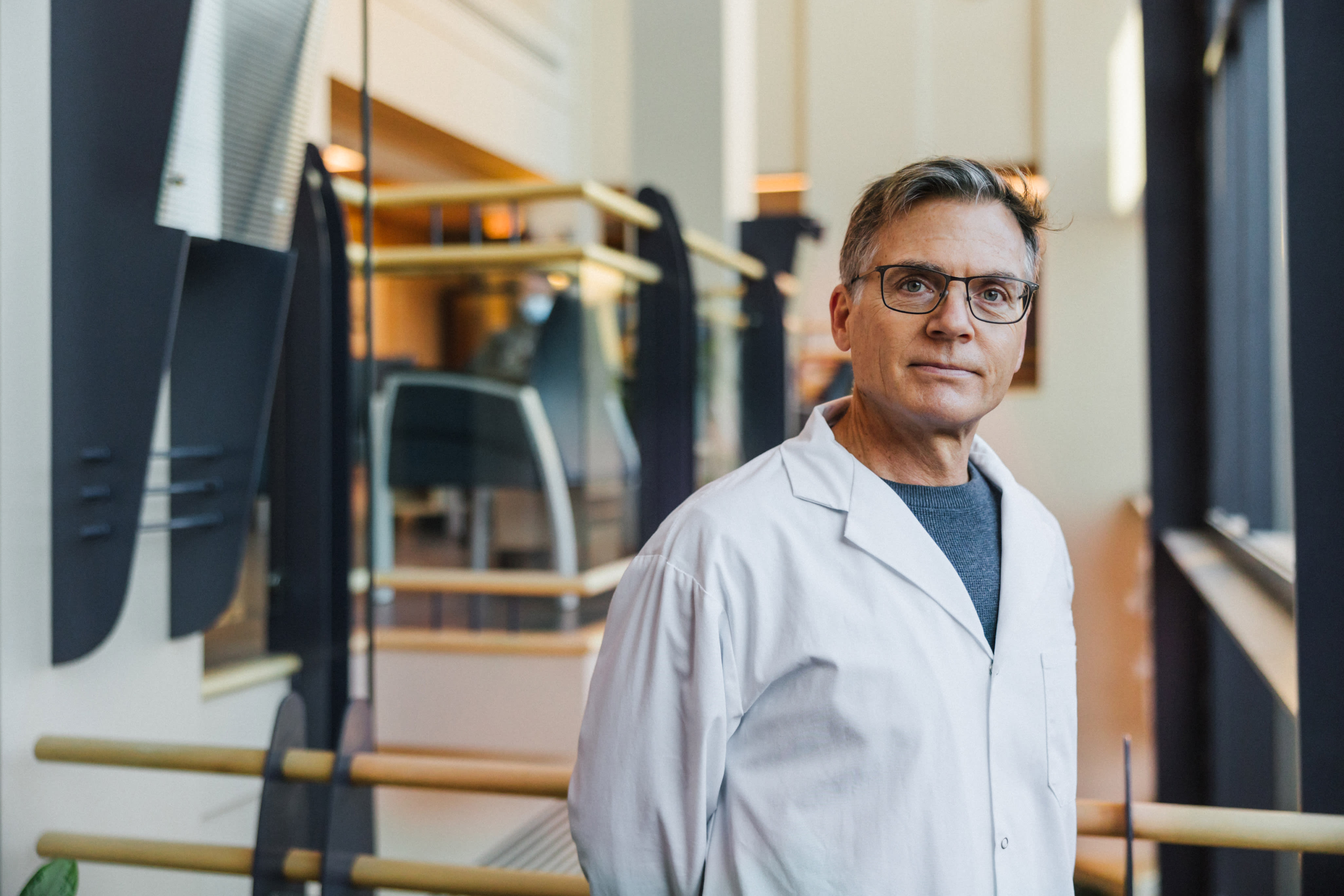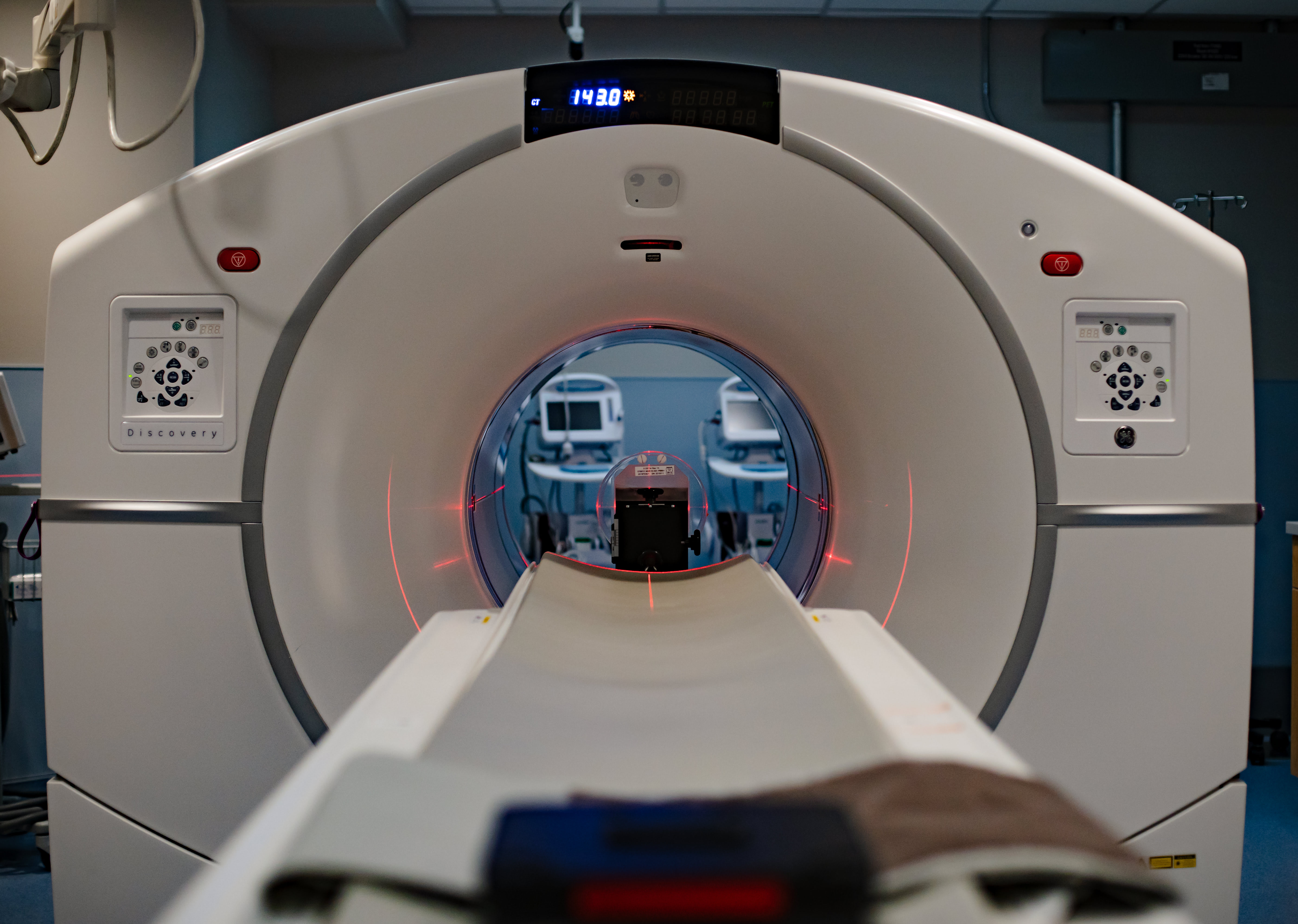Transforming Prostate Cancer Care
January 29, 2024
Found in BC Cancer - Victoria, Prostate Cancer, World Cancer Day

“Hindsight is 20/20,” says Don Helgeson when reflecting on his prostate cancer diagnosis three years ago. Don, a 54-year-old father and husband from Nanaimo, has unique authority in this area. This is his third cancer diagnosis, previously facing melanoma and colon cancer due to Lynch Syndrome – a genetic disorder that causes cancers to “grow really easily and really fast.”
Turning this into action, he’s made it his mission to break the cultural stigma men feel when speaking about physical and mental health, and raising awareness for screening and early detection.
“Women tend to have conversations on what to be checking for earlier,” explains Don using self-breast exams as a comparable example. “Men don’t have those conversations. I didn’t even know what PSA levels were until my doctor, who had luckily included it in blood work, found the levels were starting to rise.”
With early detection comes a better chance that the cancer is curable and not yet spread to other parts of the body.
Thanks to recently published research led by BC Cancer – Victoria’s Dr. Abraham Alexander, the standard of care for curative prostate patients in B.C. has been dramatically reduced to just five doses of a high-precision radiation therapy called SABR. SABR safely delivers higher doses of radiation to the tumour site, while limiting radiation exposure to healthy tissues. This results in a highly effective treatment with fewer side effects.
“Classically, patients with curative prostate cancer required five to eight weeks of daily radiation treatments. Moving to fives doses made a big difference for their quality of life,” says Dr. Alexander. “Patients from up Island don’t have to stay in Victoria anymore. They can come down, receive treatment, go home and come back the following week.”
Travelling for care creates a physical, emotional and financial toll for patients, particularly for those who need to be away from the comfort and support systems of home for long periods of time.
Dr. Alexander is looking to move the needle even further with ADAPT – 25, a cutting-edge clinical trial that – with the help of AI – will test the efficacy of two doses of SABR on curative prostate patients. The custom AI algorithm will help target radiation even more precisely, allowing radiation technicians to adapt the treatment each day to match daily changes in the body.
The trial is expected to launch by the end of 2024 and will be co-led with Dr. Winkle Kwan at BC Cancer – Surrey. The BC Cancer Foundation is fundraising $500,000 to help launch the trial.
In addition to quality of life, the non-invasive treatment is beneficial to patients as the disease is often found in older men who may not do well in surgery. When looking at the cancer system as a whole, decreasing the number of radiation visits per patient creates more capacity for others to access timely treatment.
Don’s surgery to treat his initial prostate cancer diagnosis showed clear margins, but that his Gleason Score was a 9. Two points higher than his original biopsy had shown. Essentially, his cancer was more likely to have spread than originally thought.
In late 2023, he learned his PSA levels were rising again, indicating the cancer was now growing somewhere else in his body. “Some of the cells must have gotten through and weren’t visible. They’re tiny little things.”
One machine that helps clinicians identify those rouge cells is the PSMA-PET – an advanced form of imaging that can detect specific markers only found in prostate cancer cells. This enables clinicians to determine with high accuracy if the cancer has spread and determine the best course of treatment.
“Prior to this scan, we weren’t able to find where that site of recurrence was with great accuracy. Now, we’re able to identify very early on after the initial treatments if there are sites of recurrence and can treat them aggressively with SABR.”
The scan will soon be available at BC Cancer centres in Victoria and Kelowna thanks to $6.5 million raised by BC Cancer Foundation donors. Don welcomes the news as it not only will remove the need for patients like him to travel to Vancouver – the only site currently offering it, but will also increase BC Cancer’s capacity to deliver the critical scans. Once up and running, it will also help Dr. Alexander’s team recruit candidates to the trial.
Don says he’s fortunate he’s been able to receive “unbelievable” care in his hometown of Nanaimo. But with this latest news, he’s expecting to have to travel to Victoria.
“It was one thing to do this all where I live and can go right home, but the thought of doing it elsewhere is entirely different.”
This sentiment drives home the point he wants everyone to know:
“If you have a family history, get your PSA tested earlier than I did,” he says. Despite having an uncle pass away from prostate cancer, he declined digital rectal exams offered by the RCMP during his time as an officer due to the same stigma he’s now working to break.
Don is on the leadership team of ‘Man Up To Cancer’ – an organization that works to change how men are facing cancer by helping them “to connect and avoid isolation during their cancer journeys.”
“In the chaos and unknown of what I’m dealing with, it’s a great distraction to help others. Everyone needs to know it’s ok reach out, you don’t need to face this on your own.”
Learn more about how BC Cancer Foundation donors are closing the care gap for patients like Don across the province.


